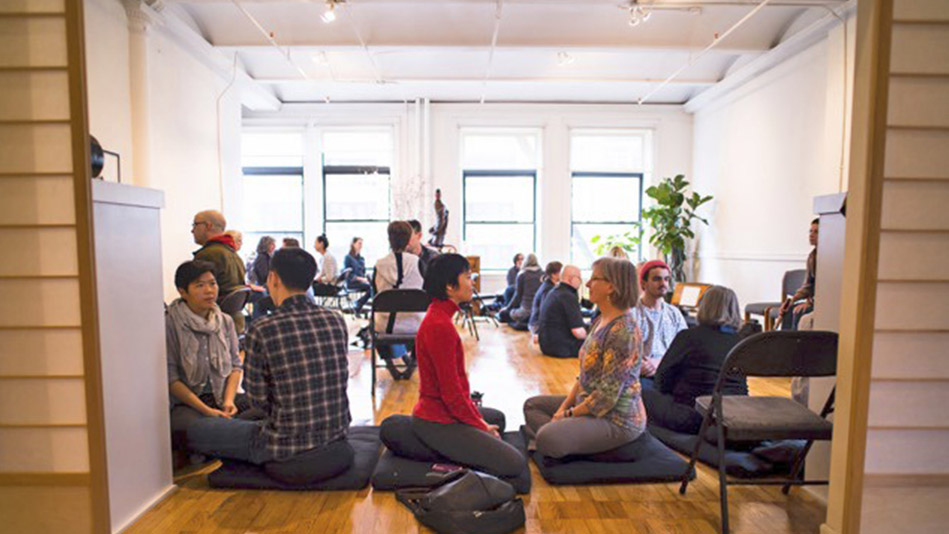How Meditation Helped One Woman Work Through Her Grief

Photo:Courtesy of New York Zen Center for Contemplative Care
"The pain is still profound," says Susan Numeroff, whose husband of 28 years died 18 months ago. "I'm traveling to places we used to go, and there are so many memories. And now I'm starting to make memories without him."
When she's overcome by sadness, Numeroff returns to her breath. If she cries, that's all right; "the sound is a meditative vibration in the body," she says. "And howling—let it out, and it's an amazing release. Then it slows, and then you're breathing, and that turns into meditation."
"Meditating through grief isn't about pushing emotions away," says Sensei Robert Chodo Campbell of the New York Zen Center for Contemplative Care, which offers support to the sick and bereaved, and trains caregivers. "You're feeling the sadness and anger arise, but not clinging to them." Campbell and Sensei Koshin Paley Ellison, cofounders of the center and coauthors of Awake at the Bedside, bring the gentle acceptance of Buddhism to a subject our culture meets with deep unease.
"Families will be weeping and arguing but then tell me, 'We didn't let Dad know he's dying. He'd be too sad,'" says Campbell. "We want to give people a nurturing, real way to deal with death."
Numeroff and her late husband, Marvin, found peace in Campbell's visits; she still meets with Campbell to talk. "It's so important to have him listen without rushing in to say, 'It'll be okay.'"
Meditation also helps her notice moments of joy. "The other day I'd been in Marvin's closet and then looked out the window and saw one lonely cloud," she says. "I thought, He's saying hi. Instead of thinking about the past or worrying about the future, I just appreciated the present. It was like getting a hug."
When she's overcome by sadness, Numeroff returns to her breath. If she cries, that's all right; "the sound is a meditative vibration in the body," she says. "And howling—let it out, and it's an amazing release. Then it slows, and then you're breathing, and that turns into meditation."
"Meditating through grief isn't about pushing emotions away," says Sensei Robert Chodo Campbell of the New York Zen Center for Contemplative Care, which offers support to the sick and bereaved, and trains caregivers. "You're feeling the sadness and anger arise, but not clinging to them." Campbell and Sensei Koshin Paley Ellison, cofounders of the center and coauthors of Awake at the Bedside, bring the gentle acceptance of Buddhism to a subject our culture meets with deep unease.
"Families will be weeping and arguing but then tell me, 'We didn't let Dad know he's dying. He'd be too sad,'" says Campbell. "We want to give people a nurturing, real way to deal with death."
Numeroff and her late husband, Marvin, found peace in Campbell's visits; she still meets with Campbell to talk. "It's so important to have him listen without rushing in to say, 'It'll be okay.'"
Meditation also helps her notice moments of joy. "The other day I'd been in Marvin's closet and then looked out the window and saw one lonely cloud," she says. "I thought, He's saying hi. Instead of thinking about the past or worrying about the future, I just appreciated the present. It was like getting a hug."



